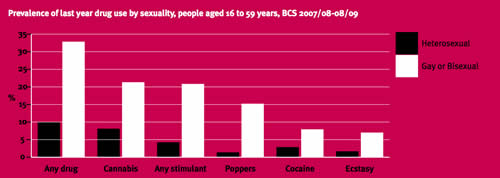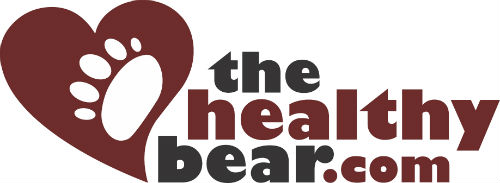Hey there Guys,
Today I was sad to hear of the untimely death of singer Whitney Houston.
Growing up as a young gay man her music was frequently heard throughout the gay scene. Her hits were varied and soul filled, sometime hinting of the sadness that tragedy that was just under the surface.
It has been frequently reported of the impact substance misuse had on Whitney’s life. She had lost elements of her magical voice, and now her life.
Evidence is starting to emerge that the combination of Xanax, a potent anti anxiety medication, and alcohol may have lead to Whitney drowning in the bath. From even the most cursory research it’s obvious that drugs and alcohol are common and condoned within the music community and the parallels with the gay community are strong.
Studies from the UK Drug Policy Commission have clearly shown that members of the gay and lesbian community are almost three times more likely to have indulged in illicit drugs than the heterosexual population.

The study goes on to report:
- Drug use among LGBT groups is higher than among their heterosexual counterparts, irrespective of gender or the different age distribution in the populations.
- Gay men report higher overall rates of use of drugs than lesbian women, largely due to higher rates of stimulant use, particularly amyl nitrite (‘poppers’).
- Cannabis is the most commonly used drug among lesbian women, with prevalence rates similar to those reported for gay men.
- ‘Recreational’ drug use is comparatively high among LGBT groups, which may lead to use of new drugs before they are widespread in the general population.
- LGBT people, particularly gay men, may also be at risk of misusing other drugs, such as steroids and Viagra.
- Some types of drug use may be associated with risky sexual behaviour, including exposure to HIV infection.
- Strong links have been reported between Viagra use and sexual risk, with Viagra used to counteract negative physical effects of other stimulant drugs.
These statistics are hard to read for many people. On one side is the homophobes saying “see all those gays are just hedonists” and on the other gay men and women concerned about the impact these statistics have on how we as a community are viewed.
As my good friend Chris said to me over lunch, “people are welcome to their own opinions but not their own version of the facts”. In this case, however, the facts are the facts. Drugs are easily available and consumed within the gay community.
Increase substance use has had a knock on effect with intoxication spilling over to other risky behaviours like violence, suicide and unprotected sex.
The HIV Seroconversion Study done in Australia have shown that use of drugs have been associated with increased risk of infection with HIV.
One third (37.3%) of those who were able to identify the HRE (the “high risk event” or time those interviewed believe they were exposed to HIV) reported drinking alcohol on this occasion, the majority of whom had at least five drinks.
Over a quarter reported using amyl nitrite, one in five used crystal methamphetamine, and one in six reported using GHB at the HRE. One in eight had taken erectile dysfunction medication such as Viagra.
Use of crystal methamphetamine and of erectile dysfunction medications was more common among NSW respondents. A minority (9.7%) reported injecting any drugs, usually crystal meth, at the HRE. Four men reported using unclean needles.
Several men felt that their use of drugs was responsible for them putting themselves at risk:
“Don’t take Tina and fuck!!!!”
This study highlights that drugs in all forms, including those currently legal, can lead to higher levels of risk taking behaviour and also reduced awareness of what may be happening during the encounter.
“I probably got it because I had been drinking and was not aware the person fucking me had not put on a condom or had removed it”
One of the biggest questions is often missed. Why?
Why are gay and lesbian people at higher risk of substance use?
Clearly there are no simple answers for this situation.
For every person who is able to enjoy a night on the town with one or two beers there is one who needs to be intoxicated to be able to leave the house.
I sometimes wonder if we are focused on the wrong elements. When we focus on the drug are we missing the important issues of why people may be taking them?
On of my medical heroes is Dr Wendell Rosevear. Wendell is a fellow doctor based in Brisbane, Australia, who has devoted his life to the care of others with a focus on the gay and lesbian community, those living with addiction, and both the victims and perpetrators of sexual abuse.
To quote SameSame.com.au:
Dr. Rosevear is active in addressing how our community relates to individuals who use drugs and alcohol and advocates nationally for understanding and drug law reform. He also lobbies for suicide prevention and against discrimination at all levels, and works with male and female victims perpetrators of sexual abuse. He’s cared for 117 perpetrators in assisting their recovery from being abusive.
“My personal life motto is ‘to make Love infectious’, I hope you catch it,”
In his paper “Drugs in perspective: Get Real” Wendell advocates for all drugs to be decriminalised to allow for people to be valued as individuals without stigma or criminalisation. “People who use drugs seek relief, they deserve relief.”
I work at the front line of drug problems in the community and in prison and I honestly believe that the National Strategy of ‘Tough on Drugs’ is making the problem worse rather than better. I say this with respect for the intent of all individuals involved in the debate and a sincere desire to decrease the pain drugs cause. I am anti-drugs but pro-choice and hence pro the value of each individual.
Currently more than 600 people die each year from drug overdoses in Australia. The main reason people die is that they take unknown doses, of unknown drugs from unknown sources. This is because the control of drug doses is in the hands of people whose only motivation is profit.
Wendell suggests:
Unless we have strategies that assist drug users to find their value, feel free to be honest, get their needs met rather than just modify their feelings, we can not expect them to stop using drugs to feel good. A punishment model including death as a consequence doesn’t help people feel good. It can’t work.
For us as a community we need to be honest and caring of each other. This includes acknowledging where we are now and looking for ways we can support those who are needing help.
By offering a supportive and loving environment that allows people to feel safe in sharing their experiences. With this safety many times we can avoid the pain that some may use drugs to dull and suppress, removing isolation and stigma that simply make the problem worse.
We may not be able to change the whole world but it only takes one act of kindness to change a person’s life. This is the coal face where change is going to happen. One person caring for another person at a time.
We all have the ability to be agents of change. Are you open to take part?
Yours in good health.
Dr George

Leave a Reply